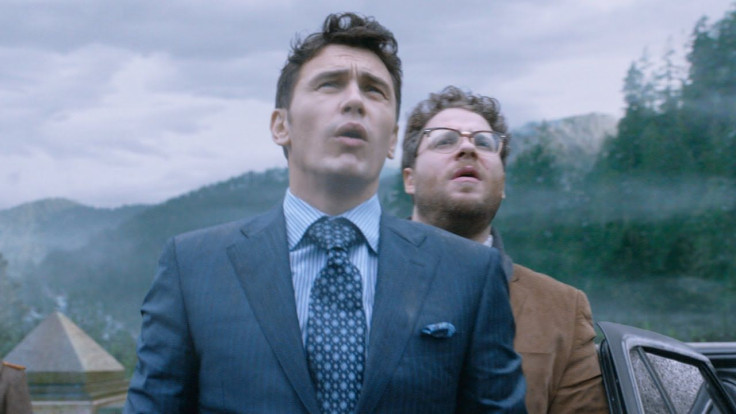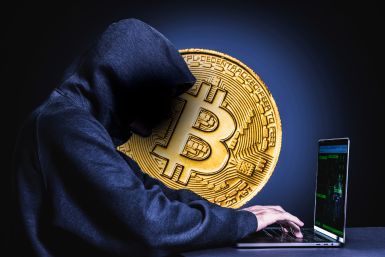Thanks, Hackers: Why Sony’s Silly ‘The Interview’ Will Join Free Speech Touchstones Like ‘Huckleberry Finn’ And ‘Lolita’

Perhaps the most disturbing consequence of the hacking attack on Sony Pictures Entertainment is that it will put James Franco in the history books. Despite a ridiculous premise and tepid box-office projections, “The Interview,” an ostensibly unexceptional bro comedy, is destined to become an important cultural touchstone, testing the limits of global free speech, cultural boundaries and censorship in an increasingly interconnected world.
Thanks a lot, hackers.
“This makes it an important movie, which it might not have been otherwise,” said Dustin Kidd, a cultural scholar at Temple University and author of the book “Pop Culture Freaks.” “I haven’t seen the film, so I can’t comment on the quality, but my best guess is that it’s not very good -- and this is going to attract a lot of attention.”
We would expect serious free-speech debates over weightier works -- Mark Twain’s “Huckleberry Finn,” for example, or Vladimir Nabokov’s “Lolita.” And yet, counterintuitively, some of the most contentious First Amendment battles this country has ever seen have centered on culturally ridiculous, even trivial creations.
Consider 2 Live Crew: Music lovers may have largely forgotten the raunchy 1990s rap band, but copyright lawyers never will. That’s because the group’s spoof of Roy Orbison’s “Oh, Pretty Woman” helped establish a fair use defense for commercial parody artists. A lawsuit over the song went all the way to the Supreme Court in 1994 and has since become a much-cited precedent in copyright law.
Another important free-speech case -- one that helped solidify our First Amendment right to lampoon public figures -- stemmed not from a high-brow humorist writing for the New Yorker, but from a parody advertisement appearing in Hustler magazine. The Rev. Jerry Falwell, the target of the parody, didn’t take kindly to being mocked in Larry Flynt’s smut rag, but the Supreme Court found that being in the public eye made the evangelical pastor fair game for parodists.
Leslie Lott, a founding partner of Lott & Fischer, who covers intellectual-property and entertainment law, said it makes sense that landmark free-speech judgments often concern works that fall outside what many would consider good taste.
“Court cases, especially Supreme Court cases, frequently address the outermost fringes of conduct,” Lott said. “The things that are accepted day-to-day don’t end up causing a big controversy. It’s offensive speech that needs to be protected.”
Your trash is our treasure
So why is the highest court in the land worrying about smut rags and raunchy rappers when there are artists bending over backwards to produce serious commentary? Mitch Stoltz, a staff attorney at the Electronic Frontier Foundation, said courts deciding free-speech cases should not be in the business of making aesthetic value judgments.
“They’re not supposed to be art critics,” he said. “Anything that’s even the slightest bit creative should be treated by the law exactly the same way as a literary masterpiece.”
What’s more, aesthetic taste is subjective, and one person’s throwaway stoner comedy is another person’s high art. In the 2 Live Crew case, Stoltz noted, the court’s opinion suggested that the parody song in question was actually an interesting social commentary on the banality of Orbison’s original work.

History in the making
Hollywood studios have long delayed releasing movies due to cultural sensitivities. For instance, some films with terrorist-related plots were temporarily postponed in the months following the Sept. 11 attacks in 2001. But capitulating to the tastes of a totalitarian government is not Hollywood’s typical style.
“The Interview” was wiped from theatrical slates Wednesday after anonymous hackers threatened 9/11-style attacks against anyone who goes to see it. Yanking the film is an unprecedented move and, like it or not, “The Interview” matters now as a test case for how future producers will deal with similarly sensitive subject matter.
Now this otherwise-unremarkable broad comedy -- about a pair of goofy journalists hired to assassinate North Korean dictator Kim Jong Un -- is sparking serious debates all across the world, with some calling Sony’s move a rational business decision and others accusing the studio of gutlessly caving to whims of bullies. “What if an anonymous person got offended by something an executive at Coke said,” tweeted an angry Judd Apatow on Wednesday. “Will we all have to stop drinking Coke?”
So maybe there’s more to “The Interview” than meets the eye -- or maybe it’s just as silly and senseless as it looks on the surface. Since there’s currently nowhere to see the film, most of us can currently only speculate, and some say that’s better for Sony in the long run.
“The cynical side of me ... suspects this was an economic decision first and foremost,” said Jared Gardner, a professor of popular culture studies at the Ohio State University. “That is, [Sony] realized they had a movie that was going to lose money in its theatrical run even before the North Korean threats.”
Sony has insisted that it has no further plans to release “The Interview,” on DVD, video-on-demand, or anywhere else, but Kidd suspects that it will find its way to the public one way or the other, whether it’s leaked online or ultimately sold to another outlet. He said history shows us that attempts to suppress controversial works -- even ridiculous ones -- are rarely successful. He recalled the story of Madonna’s sexually explicit music video for “Justify My Love,” which even MTV refused to air in the early 1990s.
“She sent the music video straight to VHS and was rumored to have made over a million dollars off of it,” Kidd said.
In other words, if you want to see Kim Jong Un’s head explode on screen, be patient. While the hackers may have effectively killed the movie’s distribution for the time being, it takes more than a few leaked emails and unspecific threats to quell morbid curiosity.
“There’s definitely going to be a lot of interest,” Lott said. “People who wouldn’t dream of going to see a silly movie like that will be interested now to see what got North Korea so upset.”
Christopher Zara is a senior writer who covers media and culture. Got a news tip? Email me here. Follow me on Twitter @christopherzara.
© Copyright IBTimes 2024. All rights reserved.












